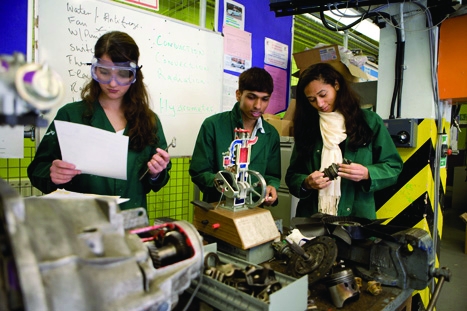Enabling students to convert to STEM subjects from other areas is an important part of the overall strategy for tackling the skills gap. Starting in 2016-2017, the new programme will involve 28 projects across 32 universities and colleges, training a total of up to 1,500 students in its first two years of operation.

“Scientists, engineers and mathematicians are all vital to driving innovation, and fuelling economic growth,” said Universities and Science Minister Jo Johnson.
“This investment will help over 1,500 graduates to retrain in these crucial STEM subjects, and is part of our commitment to people waiting to gain new skills at all stages in life. These courses will open up a rewarding career in exciting industries, and provide much needed skills to UK businesses.”
Alongside more traditional professions such as engineering, the HEFCE also hopes to attract students into areas such as analytics, cybersecurity, and software engineering. According to the funding body, the courses will provide a range of opportunities for graduates across England to convert to these subjects, with study delivered through a variety of different models.
“It is widely accepted that it would benefit the economy to increase the supply of engineers,” said Prof Madeleine Atkins, HEFCE chief executive.
“Engineering businesses face challenges in recruiting new engineers as new roles are created and the existing workforce retires. In addition, there is ever growing demand for those trained in data science, cybersecurity, and software engineering.”
“By supporting innovative course developments in universities and colleges, these awards will open up careers in these areas to a wider range of graduates, benefiting both students and employers in key sectors such as manufacturing, food and agri-tech, data science, and energy.”
Further information, including a list of the universities and courses involved in the scheme, can be found here.




Swiss geoengineering start-up targets methane removal
No mention whatsoever about the effect of increased methane levels/iron chloride in the ocean on the pH and chemical properties of the ocean - are we...